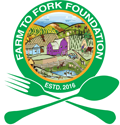Effect of poultry manure and inorganic fertilizer on earthworms and soil fertility: Implication on root nodulation and yield of climbing bean (Phaseolus vulgaris)
DOI:
https://doi.org/10.5455/faa.76612Keywords:
Fertilization, legumes, manure, nodulation, earthworm, yieldAbstract
Grain legumes provide dual benefits as a food source and soil fertility or plant nutrition enhancer, but the latter role may be influenced by fertilization regimes. A controlled study was conducted to evaluate the impact of four fertilizer treatments (control–no input, single dose NPK, split dose NPK, and poultry manure) on earthworms and soil fertility, and the implication on the performance of climbing bean (Phaseolus vulgaris). The fertilizer amendments significantly affected the soil pH, organic C, N, P, K, Ca, Mg, Na, and ECEC with the highest effect caused by poultry manure. The bean root nodule mass differed significantly across treatments with the highest in control, followed by inorganic fertilizers, and poultry manure. Significant negative correlations occurred between the root nodule mass and soil organic C, N, P, Mg, Ca, and ECEC. Earthworm density differed significantly across treatments with the highest in poultry manure as compared to the control and both single and split dose inorganic fertilizer. Earthworms correlated negatively with soil acidity and positively with soil pH, K, Mg, Ca, and ECEC. The number of bean pods differed significantly across fertilizer treatments with the highest in poultry manure followed by the split dose NPK, which differed from the control and single dose NPK. In addition, the number of bean pods correlated positively with earthworm density and soil organic C, P, Mg, Ca, and ECEC. These findings demonstrate the importance of poultry manure on earthworm population and soil fertility status, and the implication on the performance of climbing beans. Nonetheless, the results highlight potential limitations of poultry manure on root nodulation and nitrogen fixing abilities of climbing bean, which should be considered when designing integrated soil fertility management strategies.
Downloads
Downloads
Published
How to Cite
Issue
Section
License
Copyright (c) 2020 by the author(s). This work is licensed under a Creative Commons.

This work is licensed under a Creative Commons Attribution-NonCommercial 4.0 International License.





















